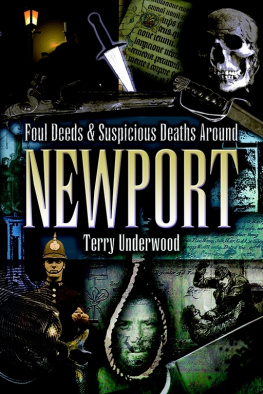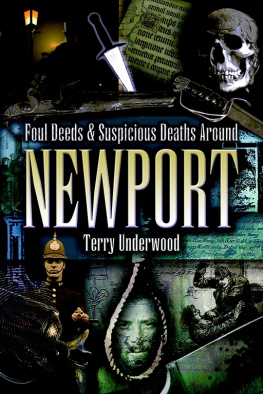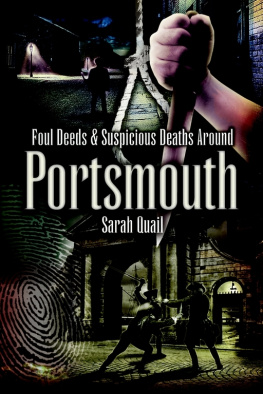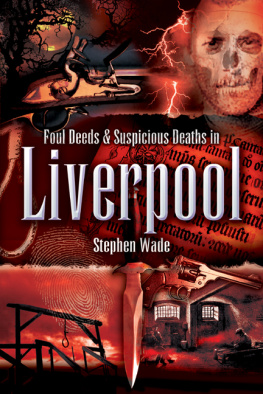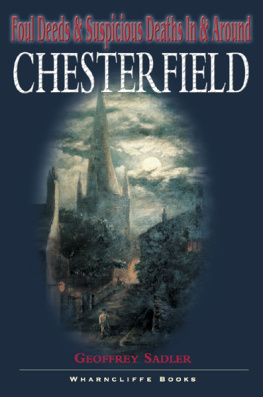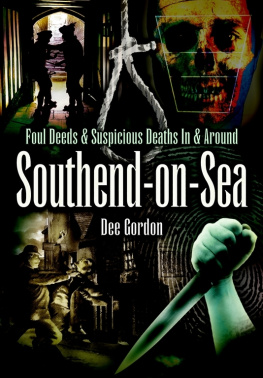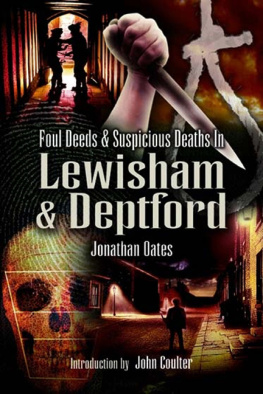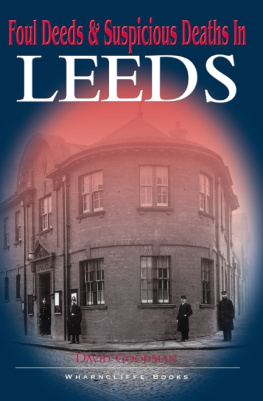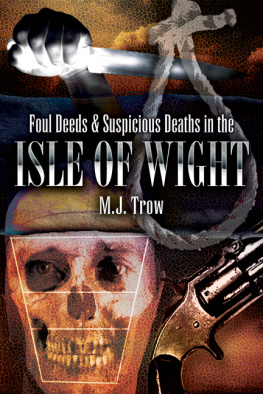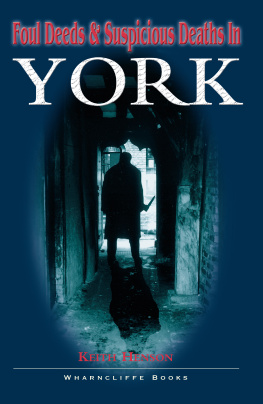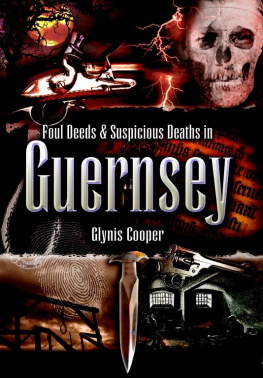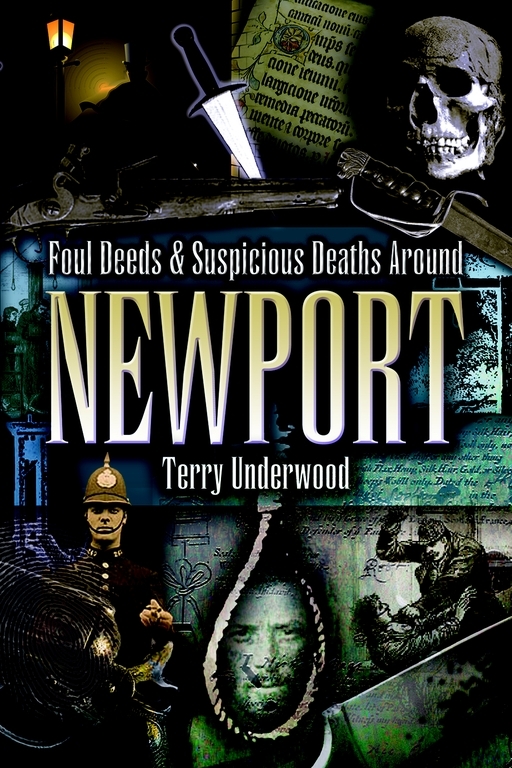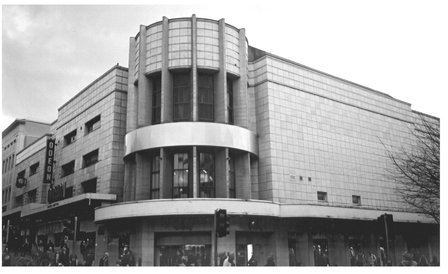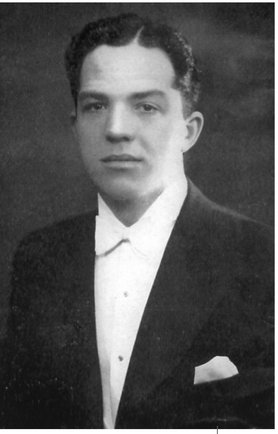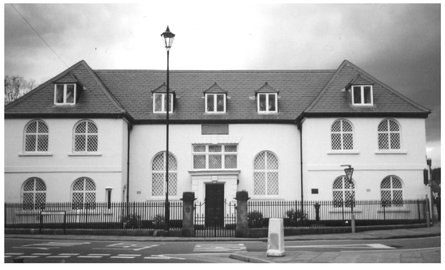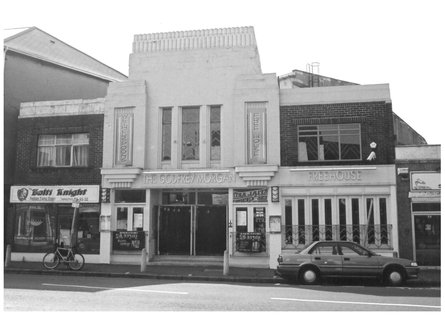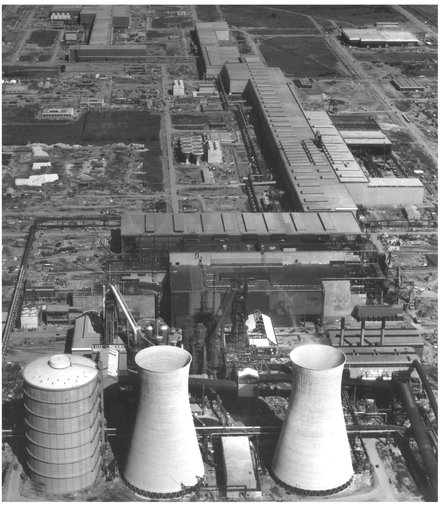The author would like to thank the following parties for their assistance in the production of this book:
The South Wales Argus for their permission to publish excerpts from their admirable local newspaper, especially the editor, Gerry Keighley and his staff.
The staff of Abertillery Library and the staff of Newport Reference Library who offered continuous assistance and advice during the five months of research for the book, also merit my appreciation.
A special thank you to Kenneth Smith and Ann Bailey who both provided leads.
To Leslie Davies, Terry ONeil, David Husband, Chief Superintendent Kevin Price and retired Chief Inspector Billie Glynn for their valuable information.
To Rex Morton, Peter Brown and Mr WG Lloyd, who supplied photographs, and to Tom Tasker for his technical support.
Thanks are also due to Tony Friend and (for photographs of the Odeon Cinema, Bristol, and its manager) Chris Plaister.
I would also like to thank the publishers, Wharncliffe Books who requested I write this book and Rupert Harding and Brian Elliott for their encouragement.
My love and thanks to my wife Hazel for supporting me in all my efforts and to my daughter Debbie for her contribution.
CHAPTER 1
Till Death Us Do Part 1650s
A few minutes later Edmund was dead, his white shirt was red, the sword having penetrated his heart.
C aerleon, a small village that was once the Roman city of Isca, is now an expanded and vital part of Newport. History tells us that in AD75, Isca was the only Roman Fortress sited on the banks of the River Usk. It had a shipping port long before Newport and the Roman archaeology remains visible even today. The foundations of the large Roman Barracks are still there, together with the remains of Roman Baths and an Amphitheatre, which is still used. In the summer season, Roman displays and re-enactments are held at the Amphitheatre. Caerleon also lays claim to being the location of Camelot, where King Arthur and his Knights of the Round Table originated.
In the early 1600s, Thomas Williams, a wealthy land and ship owner, lived in Caerleon with his wife. In 1633 Thomas and his wife had a son whom they christened Charles. By the time Charles was fifteen years old he was well known, likeable, and happy, being the only son of a prosperous father, he was also considered to be a good prospect for marriage.
Charles had a cousin called Edmund Morgan; Edmund also lived in Caerleon and was equally as popular as Charles. Throughout their teenage years, one was rarely seen without the other, as cousins they were the best of friends. They had two close companions, John Hanbury and Robert Cox. When the four boys went out and about in the village they always attracted attention, playing games together on the Common, fishing in the local rivers or dancing in the inns; in general, they were much involved with the community, and everywhere they went they were the life and soul of the party.
Robert Cox, a bright young man of twenty-four, had a sister named Annabelle. She was eighteen years old, very sweet, with an outgoing personality. When she first met her brothers three friends, it was Charles Williams who first caught her eye, and soon gained her full attention. Everyone noticed that Charles was besotted with Annabelle, and Charles occasionally took time away from his Gang of Four in order to be with Annabelle.
The romance between Charles and Annabelle flourished, it was a serious relationship and everyone in Caerleon knew this. Many of the villagers were looking forward to the day when they would marry. When, like a bolt from the sky, Charles discovered that his cousin Edmund was also seeing Annabelle on occasions, Charles was seen to be hurt and outraged. How deep the involvement between Annabelle and Edmund was not known, but Charles was so angered by the development that the four friends became estranged. The lifelong harmony between Charles and Edmund no longer existed, snide remarks were being made which infuriated Charles even further, and in a moment of rage, Charles challenged his cousin Edmund to a duel.
In the 1650s, sword fencing to the death was no longer legal, and for one human to kill another amounted to murder. Edmund and Charles were quite accustomed to fencing, but only used swords with a small metal guard on the tip of the blade. Whether Edmund thought that this was the arrangement for the duel was not known, but Edmund agreed to the contest, and the time and the place were decided upon.
John Hanbury and Robert Cox talked to Charles about this, and tried to talk him out of the duel, but Charles was adamant that the duel should take place as planned, and so he invited them to accompany him.
A quiet place had been chosen between Afon Lwyd and Candwr Brook, a small island further on up the Usk River. There, the four former best friends gathered in a state of nervousness, not knowing what the outcome would be. Before the duel commenced, they shook hands then immediately pulled swords. The fight began. For the first minute or so the duel seemed equal, as both men danced around each other in the brilliant sunshine. Their swords clashed, they gasped for breath, occasionally shouting to their opponent, Hanbury and Cox standing in silence, demonstrating their neutrality. They wished that the fight had never started. Suddenly with a loud cry Charles Williams lunged forward and Edmund fell to his knees with a look of astonishment on his face. Blood was pouring from his chest. Almost immediately, Charles rushed forward shouting No Edmund, No!He knelt to hold Edmund and cried, Please Edmund, dont die. Charles was in tears; the sound of his voice filled the air and sent a flock of birds screeching into the sky. For a moment, the two spectators stood in disbelief, and then suddenly rushed forward to comfort Charles and Edmund. A few minutes later Edmund was dead, his white shirt was red, the sword having penetrated his heart. Charles was never known to cry, but here he was reduced to tears, saying over and over again, Edmund, Im sorry, Im sorry, please forgive me.

